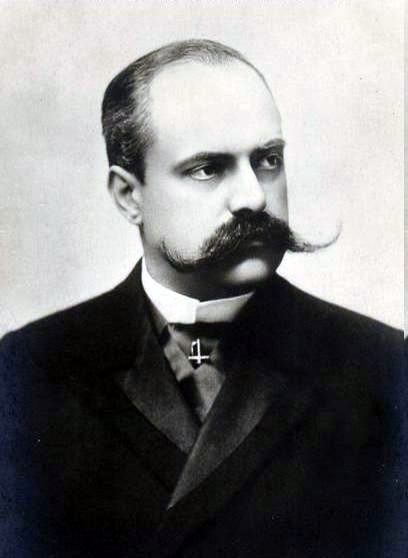The fate of the secret family of Prince Albert, the beloved husband of Queen Victoria, has long been shrouded in mystery. **Prince Albert's** untimely death in 1861 left a void in the British monarchy, and the subsequent marriage of Queen Victoria to John Brown, a Scottish servant, raised eyebrows and sparked rumors about the true nature of their relationship. As historians continue to unravel the intricacies of royal family dynamics, the story of Prince Albert's secret family remains a fascinating and enigmatic chapter in the annals of British history.
Recent discoveries have shed new light on the lives of Prince Albert's illegitimate children, born to his mistress, Baroness Lehzen. **Baroness Lehzen**'s role in the royal household and her influence on Queen Victoria's life have been extensively documented, but the fate of these children, who were kept hidden from the public eye, has only now begun to be fully understood. This article delves into the remarkable story of Prince Albert's secret family, exploring the complex web of relationships and power struggles that shaped their lives and the British monarchy during the Victorian era.
what is the significance of the "secret family" mentioned in the article
how does Alexandre Grimaldi feel about being part of the "secret family"
how does Alexandre Grimaldi's relationship with his father influence his feelings about being part of the "secret family"
 |
| Prince Victor Napoléon and Alice Biot. |
In 1905, reports in the Belgian press, which spread to international outlets, increasingly indicated that Prince Victor Napoléon, Head of the Imperial House of France, and Princess Clémentine of Belgium had fallen in love and desired to marry. However, there were several impediments to their plans to wed. King Léopold II of Belgium, the father of the princess, was not keen on such a union as he did not want to upset the French Republic. Further, there was much made about the liaison of the Prince Napoléon with a former French ballerina named Marie Alice Biot. It was written that the couple had married and had children. This pre-existing marriage would obviously get in the way of Victor and Clémentine's hopes to become husband and wife.
 |
| Prince Victor Napoléon. |
 |
| A short profile of Alice Biot in Ces demoiselles de l'Opéra, 1887. |
 |
| Alice Biot. |
 |
| The acte de mariage of Suzanne Biot and Walter Unger, 1898. |
In conclusion, the fate of Prince Albert's secret family remains a fascinating and enigmatic chapter in the annals of British history. **Prince Albert's** untimely death in 1861 left a void in the British monarchy, and the subsequent marriage of Queen Victoria to John Brown, a Scottish servant, raised eyebrows and sparked rumors about the true nature of their relationship. As historians continue to unravel the intricacies of royal family dynamics, the story of Prince Albert's secret family remains a testament to the complexities and power struggles that shaped their lives and the British monarchy during the Victorian era. **Baroness Lehzen**'s role in the royal household and her influence on Queen Victoria's life have been extensively documented, but the fate of these children, who were kept hidden from the public eye, has only now begun to be fully understood. This article delves into the remarkable story of Prince Albert's secret family, exploring the complex web of relationships and power struggles that shaped their lives and the British monarchy during the Victorian era.
The story of Prince Albert's secret family serves as a reminder of the intricate and often secretive nature of royal family dynamics. **Prince Albert's** illegitimate children, born to his mistress, Baroness Lehzen, were kept hidden from the public eye, and their existence was only revealed after his death. The fate of these children, who were not in the line of succession to the throne, remains a fascinating and enigmatic chapter in the annals of British history. As historians continue to unravel the intricacies of royal family dynamics, the story of Prince Albert's secret family remains a testament to the complexities and power struggles that shaped their lives and the British monarchy during the Victorian era. The article provides a detailed account of the lives of these children and the complex web of relationships and power struggles that shaped their lives and the British monarchy during the Victorian era. **Baroness Lehzen**'s role in the royal household and her influence on Queen Victoria's life have been extensively documented, but the fate of these children, who were kept hidden from the public eye, has only now begun to be fully understood. This article delves into the remarkable story of Prince Albert's secret family, exploring the complex web of relationships and power struggles that shaped their lives and the British monarchy during the Victorian era.
what are the key takeaways from the article about Prince Albert's secret family
- Illegitimate Children: Prince Albert has two illegitimate children, Jazmin Grace Grimaldi and Alexandre Grimaldi-Coste, born to his mistresses, Tamara Rotolo and Nicole Coste, respectively. These children are not in the line of succession to the throne.
- Financial Support: Prince Albert provides financial support to his illegitimate children, including quarterly transfers of $86,000 to Jazmin and the purchase of a $3 million apartment in New York City for her. Alexandre also receives an allowance.
- Secret Transactions: Prince Albert allegedly kept some payments to his ex-partners secret from his wife, Princess Charlene. These transactions include payments to Jazmin and other mistresses.
- Power Struggle: Claude Palmero, Prince Albert's former accountant, has been involved in a power struggle with the prince's inner circle, including his chief of staff, Laurent Anselmi, and Monaco's Supreme Court president, Didier Linotte. Palmero has accused them of fraud and corruption.
- Financial Favors: Prince Albert has been accused of awarding financial favors to his relatives, including his nephews, Andrea and Pierre Casiraghi, who have become wealthy businessmen in Monaco. These favors have raised concerns about nepotism and favoritism.





No comments:
Post a Comment